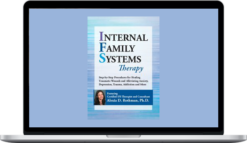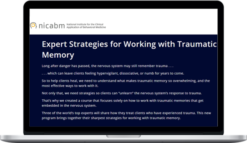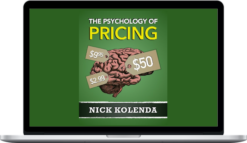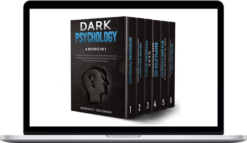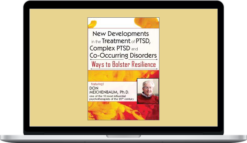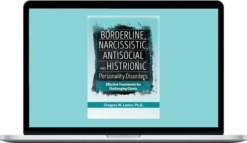Albert Wong – Somatic Approaches To Healing Trauma
$60.00 $9.00
Total Sold: 4
»Instant Delivery
Description
Albert Wong – Somatic Approaches To Healing Trauma
Learn how to approach healing trauma from a somatic perspective. Whether you’re a therapist, clinician, health care provider, someone who is supporting a loved one, or in the recovery process yourself—join us to learn body-mind techniques that can help you understand how to work with trauma from an embodied perspective.
YOUR HOST
Dr. Albert Wong
Director of Somatic Psychology
John F. Kennedy University
BLENDING ANCIENT WISDOM WITH MODERN SCIENCE
The body remembers
And we must listen.
What You Will Learn In Somatic Approaches To Healing Trauma
We’ll teach you important interventions to help leverage the body-mind connection to assist others in healing from trauma. We will cover foundational somatic concepts like grounding, titration, pendulation, resourcing, and dual awareness.
You will learn pragmatic tools that can help individuals who are experiencing trauma recover from a triggering episode.
You will learn what the three phases of trauma treatment are and why it is so important to work with somatic resources.
While nothing can replace an in-person training, this course will provide an introduction to somatic psychology and articulate a few of the primary somatic techniques for working with trauma.
Gain Inner Resilience
Learn foundational techniques to help raise a person’s capacity to resource, contain, and ground themselves in the face of difficult emotional experiences.
Work Through Implicit Memory
Discover important techniques for how to work through implicit memory in order to help metabolize frozen bodily responses.
Stabilize Trauma Response
Gain a deeper understanding of how to access resources and use pendulation and dual awareness to stabilize a trauma response.
What’s included
18 bite-sized video lessons in easily digestible form
Downloadable videos so you can watch at your convenience, on any device — whenever you want, wherever you want
Bonus pdf report: “Why CBT is incomplete”
The Lessons
The Map of the Territory
- Lesson 1: What is Trauma?
- Lesson 2: What is Somatic Psychology?
- Lesson 3: Three Quotes
- Lesson 4: To Feel Felt
- Lesson 5: Three Phases of Trauma Treatment
Phase 1: Developing Resources and Finding Safety
- Lesson 6: Survival Resources
- Lesson 7: Creative Resources
- Lesson 8: Other Resources
- Lesson 9: Somatic Resources
- Lesson 10: Grounding Resources
- Lesson 11: Boundary Resources
Phase 2: Pendulation, Titration, and Working with Implicit Memories
- Lesson 12: The Orienting Response
- Lesson 13: The Arousal Cycle
- Lesson 14: Implicit Memories
- Lesson 15: Linking Implicit Memories
- Lesson 16: Using Pendulation with Implicit Memories
Phase 3: Reorienting, Moving Forward and Embodying Wholeness
- Lesson 17: Moving Forward: Integration and Connection
- Lesson 18: Consolidation, Integration, and Next Steps
About Albert Wong
Dr. Albert Wong is the former Director of Somatic Psychology at John F. Kennedy University and a leading clinician and educator in the field of somatics. He served as residential staff at the Esalen Institute and as Core Faculty at the California Institute of Integral Studies. A Marshall Scholar, he has long standing interests in the intersection of somatics, psychotherapy, and scalable technology. He has been featured on PBS, in Time Magazine, and in the book The American Soul Rush.
His work has been published in titles ranging from the scientific journal Biological Cybernetics to the book anthology Radical Spirit. He was educated at Princeton, Oxford, and the University of Tennessee and is the recipient of numerous national awards (Westinghouse Science Talent Scholarship, Goldwater Scholarship).
More courses from the same author: Albert Wong
Delivery Policy
When will I receive my course?
You will receive a link to download your course immediately or within 1 to 21 days. It depends on the product you buy, so please read the short description of the product carefully before making a purchase.
How is my course delivered?
We share courses through Google Drive, so once your order is complete, you'll receive an invitation to view the course in your email.
To avoid any delay in delivery, please provide a Google mail and enter your email address correctly in the Checkout Page.
In case you submit a wrong email address, please contact us to resend the course to the correct email.
How do I check status of my order?
Please log in to HealthcareCourse account then go to Order Page. You will find all your orders includes number, date, status and total price.
If the status is Processing: Your course is being uploaded. Please be patient and wait for us to complete your order. If your order has multiple courses and one of them has not been updated with the download link, the status of the order is also Processing.
If the status is Completed: Your course is ready for immediate download. Click "VIEW" to view details and download the course.
Where can I find my course?
Once your order is complete, a link to download the course will automatically be sent to your email.
You can also get the download link by logging into your HealthcareCourse account then going to Downloads Page.
Related products
Total sold: 1



